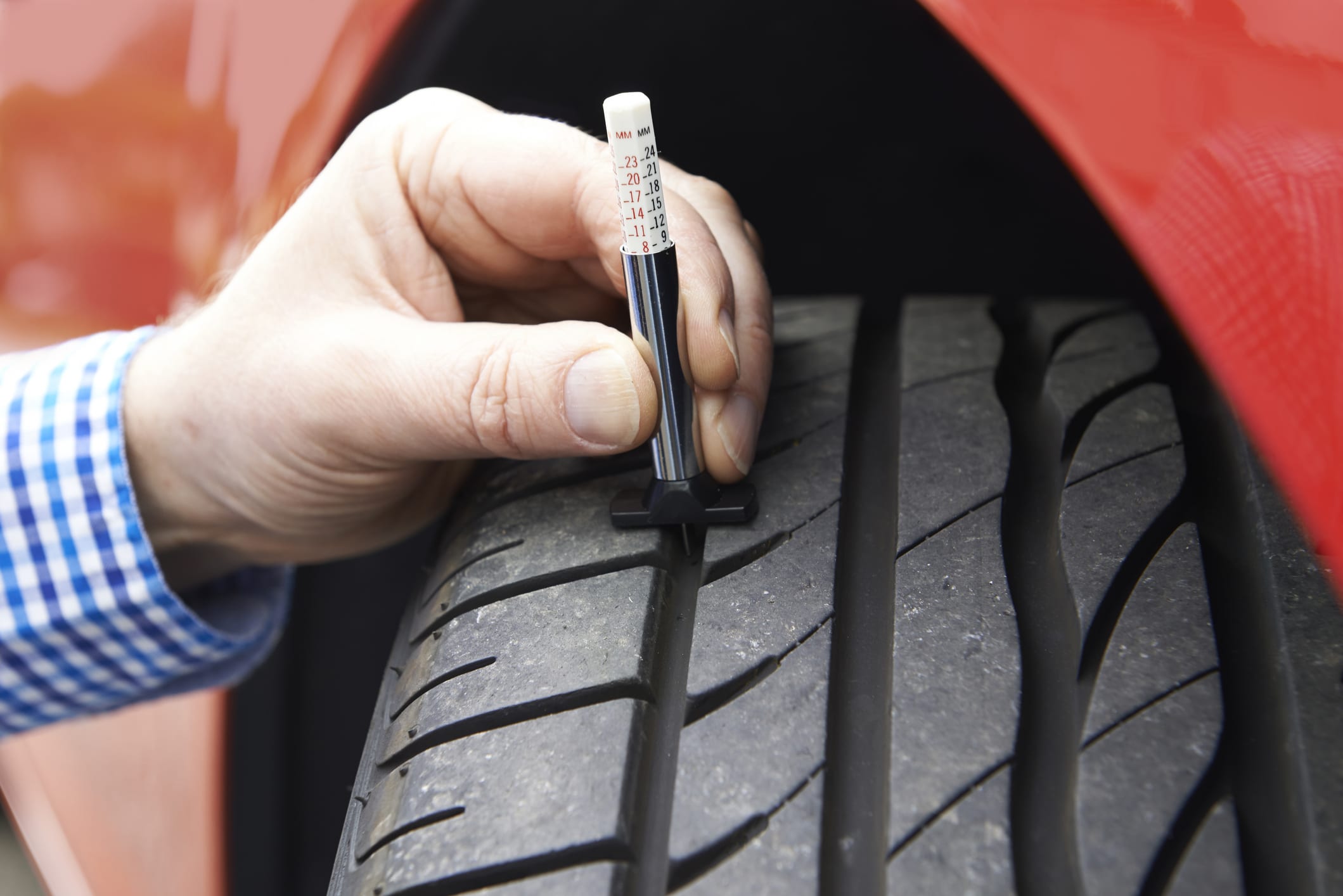
Our tyre safety tips cover why you should check your tyres and what you need to check in order to ensure tyre safety for your vehicle.
Why Should You Check Your Tyres?
- Regular tyre checks and maintenance can help reduce fuel costs, prolong the life of your tyres, lower CO2 emissions and keep you on the right side of the law.
- Worn tyres significantly impede the performance of your car – low tread depths reduce the effectiveness of braking, steering, and acceleration, all of which are vital to staying safe on the road.
- You are not insured when driving with illegal tyres. A defective tyre could lead to a £2,500 fine and three penalty points on your licence.
What do You Need to Check?
- The condition of tyres, including inner and outer sidewalls. Tyres should be free of any stones and fitted with a dirt free valve cap.
- By Law, Tyres must have a minimum of 1.6mm tread depth in a continuous band. The deeper the groove, which is on the surface of the tyre, the more grip a tyre will have. You can prevent danger of unexpected accidents by checking your tyre wear on a regular basis.
- Check your Tyre Pressure regularly. The tyre inflation pressure is directly related to safety therefore must be checked regularly as correct maintenance can prolong the lifespan of the tyres. An incorrect level of air can cause steering, accelerating, breaking difficulties and significantly shorten the lifespan of the tyre. The correct pressure for your vehicle will be noted in your Vehicle Manual.
- Check signs for irregular wear. If your tyre us evenly worn across the surface, then this could be a sign of over/under inflation. If it is only worn on one edge it is likely to be a result of poor wheel alignment.
- The importance of Tyre Rotation. Periodic tyre rotation helps extend the life of tyres and improve performance levels. For your safe driving and saving money please refer to the rotation method below. In general it is best to rotate tyres every six months or 6,000 miles. Each tyre is removed from your vehicle and moved to a different position to ensure that all tyres wear evenly and last longer.
- Check and examine your spare tyre.
Information provided by Hankook.
Our breakdown cover includes flat tyres so you have peace of mind if you ever breakdown. We also cover you 365 days of the year across Northern Ireland and the Republic of Ireland. No hidden costs, everything you need is included. Buy breakdown cover here.

